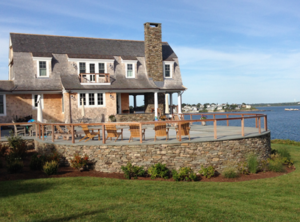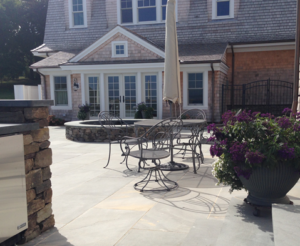 While DiPrete Engineering takes pride in its large scale projects, the team is also very experienced in single-family and estate project management. These projects are often complex and require heavy coordination among a cross-functional team. Clear and thorough communication is key to any successful project. DiPrete’s diverse team knowledge, coupled with its creativity allows for the best possible results.
While DiPrete Engineering takes pride in its large scale projects, the team is also very experienced in single-family and estate project management. These projects are often complex and require heavy coordination among a cross-functional team. Clear and thorough communication is key to any successful project. DiPrete’s diverse team knowledge, coupled with its creativity allows for the best possible results.
“What makes DiPrete Engineering so special is our team’s versatility when it comes to projects,” said Dennis DiPrete, Principal of DiPrete Engineering. “Regardless of size, each is treated with the same attention to detail, coordination, and planning.”
Nicole Reilly, Senior Project Manager at DiPrete has worked very closely on the team’s single-family projects in southern Rhode Island and Newport County. Senior Project Manager, Brian Timm has managed the design and permitting of single-family estate projects throughout Massachusetts in towns such as Newton, Lexington, Waltham, Wellesley, Brookline, and Cambridge. Over the years, both have obtained complicated permits for these estate homes.
Nicole and Brian’s attention to detail has played an important role in the success of these projects. Some of the factors that make these projects so complex are:
- Most estate homes in New England tend to be located near beautiful coastal features such as beaches, wetlands or other waterways, or in heavily landscaped and tree covered neighborhoods. Many local towns have rigorous permitting requirements to protect these coastal and landscape features. On top of these permits, DiPrete must work within the state’s regulations.
- Due to the proximity to the ocean or other waterways, many of these projects involve the design and construction of new docks, boardwalks, bulkheads, and boat launches which require extensive environmental permits.
- Projects typically require heavy coordination with many consultants and vendors including landscape architects, architects, marine engineers, environmental scientists, stone masons, and vendors for tennis courts, in-ground pools, and outdoor kitchens.

- The home designs typically include tiered stone walls, terraced landscape gardens, all-embracing patios, drive-under garages, and upper level balconies accessed from ground level which require intricate grading and drainage designs.
- Exterior utilities are more complicated than your typical sewer, water, electric, cable and gas services. Many homes feature heated driveways, outdoor kitchens, gas fire pits, recycled rainwater systems, landscape or driveway lighting, and electrical connections for docks, pools, and other sport courts.
- Proximity to sensitive wetland or coastal areas results in the need for carefully designed nitrogen reducing on-site wastewater treatment systems.
- Numerous hard and softscape surfaces (cobblestone, brick pavers, concrete, stone, reinforced grass paver grids, turf) are incorporated into the design which more often than not result in alternative drainage mitigation approach.
- Estate homes are designed with every detail in mind. The homeowner is designing their very own ‘sanctuary’ and there is a lot of passion and emotion that goes into every detail.
“Tackling difficult permitting and other coastal area setbacks is always a great accomplishment,” said Nicole. “There is also an emotional appeal to these projects which makes them different from others. These are places that clients could potentially spend the rest of their lives. They must be designed and executed with care.”
To learn more about DiPrete’s expertise for all types of projects, visit: https://www.diprete-eng.com/projects/
Photo Credit: John C Carter Landscape Architects
